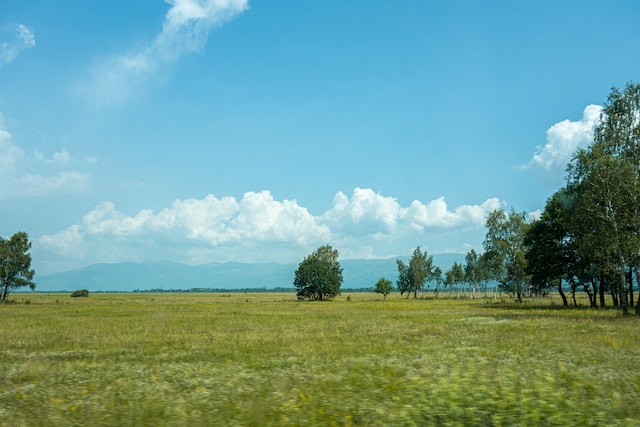Land investing is excellent for real estate investors who want to diversify their portfolios. However, the process of buying and selling raw land is different from other property types.
Investing in land offers a variety of benefits that make it a smart long-term investment.
No Competition
Land investments may be risky, but it is an investment opportunity that can be quite lucrative for real estate investors. It requires patience, determination, and much research and knowledge to succeed.
Raw land is a finite resource, and demand for the limited asset will rise as the population grows. This will inherently increase the value of the property.
Investing in raw land offers a variety of benefits, including the potential to build a house or other structure on the property, low maintenance costs, and little competition. This type of investment also provides an excellent opportunity for passive income and allows investors to utilize 1031 exchanges to avoid capital gains taxes on the sale. Learn more about land buying via: Sellland.com.
Low Maintenance Costs
Raw land has the potential to be a lucrative real estate investment. Depending on location and zoning laws, it can be developed into various entities that produce multiple revenue streams.
Investors can build or develop homes and commercial properties into a subdivision of leased lots for renters. Because of the low maintenance costs associated with this type of property, it can offer a great return on investment.
However, it’s essential to consider your financial situation before investing in raw land. Because this is a buy-and-hold investment, it may take years to realize a profit. If you cannot afford this extended wait period, it’s probably best not to invest in raw land. You should also consider the potential costs of introducing utilities into the property, which could be costly.
Appreciation
Raw land investment offers unique benefits for investing in real estate. The main benefit is that the property hasn’t been developed into a house or commercial structure, so you’ll have initial flexibility and a wide range of options for its eventual use.
Another benefit of raw land investment is that it can appreciate over time. The reason is that there’s a finite amount of space on earth, and as demand grows for the property, its value will increase. You can find raw land at auctions, county tax sales, or by searching public records for owners who owe significant debt. However, realizing a profit may take a while, as this is a natural buy-and-hold investment.
Taxes
Raw land is an appreciating asset due to its limited supply and increasing demand. However, raw land investment requires unique knowledge and hard work to achieve sizable profit margins.
Investors should always ask and get answers to essential questions, including how the land was used previously, zoning regulations, annual taxes, utility access, and more. Hiring a professional land surveyor for a thorough inspection is also recommended.
Buying raw land is a good investment for investors with patience and a penchant for long-term strategies. It’s also an excellent option for buyers who want to avoid the risks of constructing their homes. Investing in raw land may be a good choice if you want to enjoy low maintenance costs and an opportunity for future appreciation.
Flexibility
Raw land investments offer investors several options, depending on zoning laws and where the land is located. This flexibility allows investors to make the most of their investment, whether by improving the property with a new driveway or well, building a single-family home, or turning the land into a mobile home park.
However, it is essential to remember that raw land investing is a buy-and-hold investment and will only provide a short cash flow. As such, performing due diligence and ensuring you have the proper funds before investing in land is essential. This is especially true if you plan to use the land for residential or commercial purposes. If you cannot meet the purchase and maintenance costs of the land, you may be better off investing in a developed property.
Featured Photo by Ilse on Unsplash
